2025 Fellows
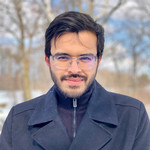 Mosam Dabhi
Mosam Dabhi
Ph.D. Candidate, Robotics Institute
Stealth Startup
Mosam Dabhi is a Ph.D. candidate at Carnegie Mellon University's Robotics Institute and founder of a stealth deep-tech AI lab. His team is developing research that equips machines with real-world intelligence - moving beyond traditional data-hungry methods and unlocking pathways toward real-world automation and artificial general intelligence (AGI). Mosam’s contributions span 15+ peer-reviewed publications at top venues such as CVPR, NeurIPS, and RSS, recognition as an Outstanding Reviewer at CVPR 2025, and active collaborations with multiple industry innovators.
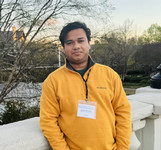 Vikram Mohanty
Vikram Mohanty
Postdoctoral Fellow, Human-Computer Interaction Institute
Vikram Mohanty is a postdoctoral fellow in the Human-Computer Interaction Institute at Carnegie Mellon University. He earned his Ph.D. in Computer Science from Virginia Tech, where his research focused on designing systems that combine the complementary strengths of crowdsourced human expertise and artificial intelligence to solve complex, real-world problems.
During his Ph.D., he led the development of Civil War Photo Sleuth, an AI-powered online platform that helps identify unknown portraits from the American Civil War era. The platform has grown to over 20,000 registered users and 60,000 photos, and has since evolved into The Photo Sleuth Foundation, a 501(c)(3) nonprofit organization. His work has been recognized with multiple best paper and poster/demo awards at leading HCI and AI conferences, as well as the Microsoft Cloud AI Research Challenge Grand Prize. Prior to joining CMU, Vikram was a postdoctoral research scientist at Bosch Research North America, and has held research internships at the Toyota Research Institute, VSCO, and Dataminr. He received his undergraduate degree in Electronics and Electrical Communication Engineering from the Indian Institute of Technology (IIT), Kharagpur.
Currently, Vikram’s research focuses on how artificial intelligence can serve as a creative partner—augmenting human intellect to help generate novel ideas, solve complex problems, and overcome creative blocks in innovation workflows. He is exploring new interaction paradigms and computational workflows that empower R&D scientists, engineers, and designers to think more expansively, navigate idea spaces more effectively, and accelerate the path from insight to impact.
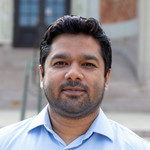 Md Sakibur Sajal
Md Sakibur Sajal
Ph.D. Candidate, Electrical and Computer Engineering
Startup Name: LightQuant
Md Sakibur Sajal is an Electrical Engineer currently pursuing a Ph.D. in the Department of Electrical and Computer Engineering at Carnegie Mellon University (CMU). Prior to joining CMU, he completed his undergraduate degree in Electrical and Electronics Engineering at the Bangladesh University of Engineering and Technology (BUET), where he also served as a lecturer for a brief period. Additionally, he taught at United International University (UIU) in Bangladesh while conducting research at the AIMS Lab, where his work earned him an innovation research grant from the ICT Division of the Government of Bangladesh. At CMU, Sakibur’s research spans multiple interdisciplinary fields as a member of the Integrated Circuits and Bioengineering Laboratory, led by Prof. Marc Dandin. He has made significant contributions to the development of perimeter-gated single-photon avalanche diode (SPAD) photodetectors, exploring their use in a variety of applications. In recognition of his achievements, Sakibur was awarded the James Sprague Presidential Fellowship in 2023.
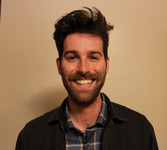 Peter Schaldenbrand
Peter Schaldenbrand
Ph.D. Candidate, Robotics Institute
Startup Name: Surreal Robotics
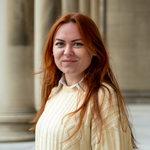 Savannah Talledo
Savannah Talledo
Ph.D. Candidate, MCS Chemistry
Startup Name: Solicella
Savannah Talledo is a Ph.D. candidate in the Bernhard Lab. She received her B.S. in Chemistry and B.A. in Theatre from Wofford College in Spartanburg, SC.
Savannah’s research focuses on developing light-driven hydrogen evolution systems as a sustainable and innovative pathway for clean fuel production. Rapid advancements in the lab have been enabled by custom-built, high-throughput photoreactors capable of monitoring over 800 reactions simultaneously. The startup’s mission is to deliver affordable, clean energy solutions that compete with the cost of fossil fuels, while ensuring ease of assembly and minimal maintenance.
2024 Fellows
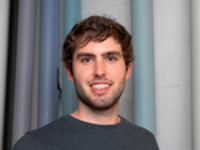 Dominik Bauer
Dominik Bauer
Ph.D. Candidate, Robotics Institute
Startup Name: FuturHand Robotics
Dominik Bauer is a Mechanical Engineer and Roboticist who has been designing dexterous and low-cost soft robotic hands for over 7 years. His research combines rapid prototyping techniques, design optimization, and machine learning to make robot hands more accessible and easier to use. He is currently pursuing a Ph.D. at the Robotics Institute at Carnegie Mellon University (CMU). Dominik holds a B.Sc and M.Sc. in Mechanical Engineering from Karlsruhe Institute of Technology (KIT) in Germany.
His research involves automating the design process of soft robotic hands through a combination of computer-aided design (CAD), optimization, simulation, and motion capture. Dominik is a member of the AI Institute for Resilient Agriculture (AIIRA), where he is exploring the application of soft robot hands for automated harvesting, to increase the deployment of robots in real-world environments. He co-founded his startup FuturHand Robotics, to bring dexterous robotic solutions to market where they can help combat labor shortages, drive productivity, and automate dull, dangerous, and dirty jobs.
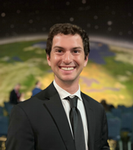 Mitchell Fogelson
Mitchell Fogelson
Ph.D. Candidate, Mechanical Engineering
Startup Name: Beyond Reach Labs
Mitchell B. Fogelson earned his B.S.E. in Mechanical Engineering (2017) and M.S.E. in Robotics (2018) from the University of Pennsylvania. He is now a Ph.D. candidate in Mechanical Engineering at Carnegie Mellon University, co-advised by Dr. Zachary Manchester and Dr. Jonathan Cagan. His research focuses on advanced simulation and optimization methods for mechanical metamaterials and robotic systems.
In 2023, Mitchell founded Beyond Reach Labs, Inc. to commercialize his research on novel extending structures that were developed through a NASA grant exploring large-scale space structures for artificial gravity. Beyond Reach Labs has since expanded its designs to address issues like transportation volume constraints and on-site labor limitations, with applications in deployable communication towers for disaster relief, ultra-compact stretchers, and lunar habitat construction. Mitchell is also a visiting resident at the Robotics Factory through the Scale initiative.
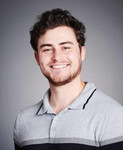 Sam Gershanok
Sam Gershanok
Ph.D. Candidate, Materials Science Engineering
Startup Name: StimGen
Sam Gershanok is a Ph.D candidate in the Cohen-Karni Lab. He received his B.S. in Materials Science Engineering from University of Pittsburgh and is a proud Pittsburgh native.
Sam strives to create healthcare devices that alleviate patients suffering while improving clinicians' understanding of ailments. His research focuses on leveraging nanomaterials to address intractable diseases through the development of bioelectronic platforms.
 Aaron Trowbridge
Aaron Trowbridge
Research Associate, Robotics Institute
Startup Name: Kestrel
Aaron is a staff research associate in the Robotics Institute at Carnegie Mellon University and a part-time electrical andcomputer engineering MS student. He has worked on quantum optimal control technology for two years, developingcutting-edge methods that have been successfully tested on hardware devices. He enjoys climbing, running, biking,hiking, and reading in his free time.
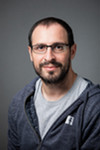 Francisco Vicente Carrasco
Francisco Vicente Carrasco
Senior Research Scientist, Robotics Institute
Startup Name: ReflectAR
Francisco is a Senior Research Scientist working on the intersection of CV/ML/Graphics. Previously, Francisco worked as Research Engineering Lead at Epic Games where he developed the Neural Networks back-end module used to power several Unreal Engine functionalities that are widely adopted in the video game industry.
Prior to Epic Games, he was a Research Engineering Manager at Meta, where his team built computer-vision algorithms and state-of-the-art technology implementations applied to mobile augmented-reality and virtual reality. These applications are being used across Facebook platforms such as Instagram, Messenger, and Facebook where they power users’ AR usage.
Until December 2016, Francisco was the Chief Technology Officer (CTO) at FacioMetrics LLC where he built computer vision algorithms and their implementations in areas such as facial feature tracking, head pose estimation, expression analysis and face de-identification. The company was later acquired by Meta(Facebook). He has over 12 years of experience in the field of ML/CV with a focus on human faces and facial expression analysis and its various applications. Additionally, Francisco is 2015 graduate of the CMU Master of Science in Robotics program.
2023 Fellows
 Kevin Dai
Kevin Dai
Ph.D. Candidate, Mechanical Engineering
Startup Name: PrintSil
Kevin Dai is a Ph.D. candidate in the Biohybrid and Organic Robotics Group under Victoria Webster-Wood, studying biomimetic and soft robotics. He holds a B.S. in Mechanical Engineering from Georgia Tech and has held multiple engineering internships at companies such as Northrop Grumman and SpaceX.
Kevin’s continued research is targeted towards expanding material selection for additive manufacturing through the creation of soft and flexible resins. These materials could enable the rapid development of low-cost and high-performance elastomer components without requiring additional fabrication tooling.
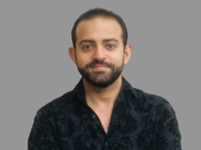 David Guirguis
David Guirguis
Ph.D. Candidate, CMU Next Manufacturing Center
Startup Name: Consistency
David Guirguis received his MASc degree in mechanical engineering from the University of Toronto. He has wide research experience in engineering design and manufacturing, thermal engineering, and artificial intelligence, working at the University of Waterloo, as a Research Associate and the University of Toronto as a Visiting Researcher. He worked as a Mechanical Design Engineer with Trimble, Inc., Applanix in Ontario, Canada. He was named a leading innovator by the MIT Technology Review, and his research received graduate awards at international conferences including the Materials Science & Technology (MS&T).
David is working to make the 3D printing of metal alloys of more consistent quality and predictable outcome. He works on understanding the defect formation mechanisms during the additive manufacturing of metals by powder bed fusion. In addition, he has developed cost-effective smart monitoring, and prediction methods leveraging artificial intelligence to make the process development economically viable for consistent quality of metal printing towards a widespread of the technology. He is founding his startup company, Consistency, bringing the technology he developed during his doctoral studies to the market.
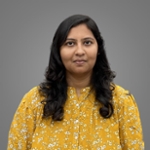 Renuka Hyderkhan
Renuka Hyderkhan
Postdoctoral Research Associate, Department of Mechanical Engineering
Startup Name: CMU CVD
Renuka Hyderkhan holds a Ph.D. from Birla Institute of Technology and Science, Pilani – Hyderabad, India, where her doctoral research was centered on understanding how ferroelectric materials could be utilized in the field of solar energy conversion and devise strategies to optimize their efficiency and overall performance. Currently serving as a Postdoctoral Research Associate at Carnegie Mellon University, Renuka works alongside Prof. Reeja Jayan in the renowned Far-from-Equilibrium Materials laboratory in Mechanical Engineering Department. Her research in the Jayan Lab is focused on the use of electromagnetic fields for development and processing of materials, particularly for structurally integrated energy and sensing applications.
Additionally, Renuka’s ongoing research endeavors, such as reducing the carbon footprint of battery manufacturing and implementing electromagnetic de-carbonization in ceramic processes, are driven by a strong commitment to sustainability. To achieve their goals, they recognize the importance of commercializing these technologies, enabling widespread adoption and impact. By focusing on commercialization, Renuka and her team aim to bridge the gap between academia and industry, translating their research outcomes into tangible products or processes that can be readily utilized in real-world settings. Through partnerships with industry stakeholders, investors, and relevant organizations, they strive to bring their innovations to market, ultimately making a positive and transformative impact on industry and society at large.
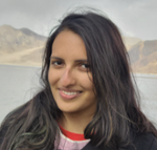 Aditi Kabra
Aditi Kabra
Ph.D. Candidate, School of Computer Science
Startup Name: SafeRails
Aditi Kabra is a fourth-year Ph.D. student in the Logical Systems Lab at Carnegie Mellon University, advised by André Platzer. She earned a B.S. in Computer Science, Mathematics, and Physics from Cornell University. Her research interests lie in the verification and synthesis of safety-critical controllers for cyber-physical systems.
Train protection systems safeguard railroad operations by keeping motion within a safe envelope. These systems decide when to slow trains down to avoid collisions with other trains, stay inside movement authorities, and navigate slopes, curves, and tunnels safely. Aditi's research brings increased safety and reliability to train protection systems by creating control software that is mathematically proven safe, with the proof of safety checked by a computer. She is driving the commercialization of this technology.
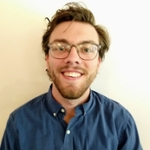 Jay Maier
Jay Maier
Masters Degree Candidate, Robotics Institute
Startup Name: Latent Robotics
Jay Maier is pursuing a MS degree in Robotics at CMU and holds a B.S in Mechanical Engineering from the University of Pittsburgh. Before coming to CMU, Jay was the lead hardware engineer for the team developing the DARPA RACER GFX fleet in his role at Carnegie Robotics.
Jay's research centers around leveraging the techniques that enable modern mobile robot autonomy (particularly in estimation and control) to revolutionize the recycling industry. Jay works in the Biorobotics lab at CMU on modeling and optimization for E-Waste recycling and is leading the effort to commercialize some of the tech that the group has developed.
2022 Fellows
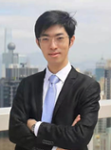 Rui Cheng
Rui Cheng
Postdoctoral Research Associate, Department of Mechanical Engineering
Rui received his M.S. and Ph.D. in Mechanical Engineering from The University of Hong Kong and was awarded Graduate with Distinction (2015, M.S) and Top-10 Outstanding Research Postgraduate Students (2020, Ph.D.). He holds a B.E in New Energy Science and Technology from Zhejiang University. He has a wide research background in nanomaterials, photovoltaics, electrochemistry, and thermal dynamics.
Rui has developed a robust, low-cost, and scalable fabrication method for nanostructured films and is currently exploring its applications in energy-related technologies. For thermal interface materials, a paper-like composite nanostructured film was strategically designed with an ultra-high thermal conductivity like metal, which is promising to efficiently dissipate heat and boost-up the performance of electronic devices. For battery, supercapacitor and photo/electro-catalysis related applications, the tunable nanostructure provides large surface area and extra current flow paths that are favorable for improving the energy conversion performances.
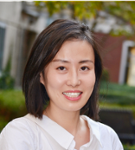 Feifei Fu
Feifei Fu
MBA Candidate, Tepper School of Business and Technical Coordinator, Department of Biological Sciences
Feifei's recent work from the department of biological sciences at CMU focuses on developing next-generation tissue expansion technologies, which are then combined with machine learning to extract nanoscale subtle biological changes and disease progression insights from archival pathology specimens. This technology has great potential to dissect complex cancer biology, accelerate drug development, and improve diagnosis, treatment response prediction, and healthcare outcomes by providing pathologists with nanoscale views that were not previously possible.
 Vishal Jain
Vishal Jain
Research Scientist, Carnegie Mellon University Neuroscience Institute
Vishal Jain holds a PhD in field of Neuroscience from Bharathiar University, India. Currently he is working as a Research Scientist with Prof. Maysam Chamanzar at Department of Electrical and Computer Engineering, CMU. He leads the development of biological methods for validation of advanced neuro-technologies. He is studying functional changes in neural circuitry using electrophysiology and optical imaging methods in different brain regions employing ex-vivo and in-vivo models. His research interests are at the interface of neuroscience and neurotechnology to develop novel neuroelectric and neurophotonic technologies and translate them to basic neuroscience and BCI applications.
Dr. Jain with his team developed a novel approach for non-invasive brain stimulation with submillimeter scale resolution. Using this approach, they are developing a device, “PainAllay” which aim to help in mitigation of chronic pain following stroke, intense surgeries and similar conditions.
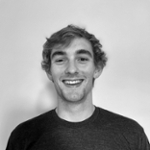 Spencer Matonis
Spencer Matonis
Ph.D. Candidate, Materials Science & Engineering
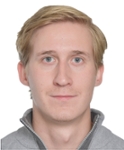 Filip Relander
Filip Relander
Master's Degree, Biomedical Engineering
Filip’s research in Dr. Jana Kainerstorfer’s Biophotonics Lab focuses on the use of near-infrared spectroscopy for non-invasive intracranial pressure sensing. The LICA system developed in the Lab uses signal processing and machine learning methods to provide robust and accurate intracranial pressure estimation across various applications including medical, space, military and sport. Filip is spearheading the commercialisation of this technology.
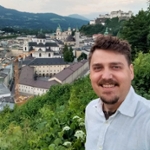 Craig Shultz
Craig Shultz
Postdoctoral Fellow, Human Computer Interaction Institute
Craig's award winning research lies at the intersection of haptics, electromechanical systems, and human computer interaction His continued research is focused on commercializing novel actuation and sensing methods for haptic (tactile) interfaces, especially those which are inexpensive, reliable, and high performance. His goal is to pioneer disruptive technologies which can lead to the proliferation of cutting edge high fidelity haptic interfaces.
2021 Fellows
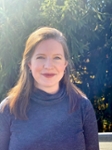 Megan DeBari
Megan DeBari
Materials Science and Engineering, Ph.D. Candidate, College of Engineering
Megan DeBari earned her M.S. in Materials Science and Engineering from Carnegie Mellon University. She also holds B.S. degrees in Materials Science and Engineering and Zoology from the University of Florida. Her thesis research focused on personalizing patient treatment for soft tissue defects by better understanding how differences in patients affect tissue health, creating better adipose tissue disease models, and creating a personalized biomaterial degradation approach. Her continued research will focus on improving and commercializing acoustically sensitive silk biomaterials that can be triggered to degrade post-implantation, non-invasively.
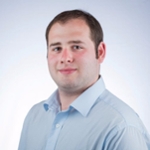 Matthew Guttenberg
Matthew Guttenberg
Mechanical Engineering, Ph.D. Candidate, College of Engineering
Matthew Guttenberg is a Ph.D. candidate under Venkat Viswanathan studying complex system dynamics as they relate to electric vehicle systems and charging infrastructure. He has been involved with numerous projects including how platooning, convoying of trucks, affects the energy requirements of electric semi-trucks and how machine learning techniques can be applied to battery modeling. Matt got his undergraduate degrees in Mechanical Engineering and Energy Engineering from the University of California at Berkeley and has had numerous internships in industry with companies such as SunPower.
His current research focuses on a complex system analysis algorithm called Incepts. This software couples high-fidelity battery and vehicle dynamics, informed by the locality of the simulation including weather, traffic flow, etc., with agent based simulations to accurately simulate fleets of electric vehicles. This software can be used for accurate trip-planning, fleet analysis and charger infrastructure optimization for various types of electric vehicles.
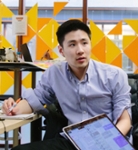 Yongsung Kim
Yongsung Kim
Postdoctoral Fellow, Human-Computer Interaction Institute, School of Computer Science
Yongsung Kim is a postdoctoral fellow in the Human-Computer Interaction Institute at Carnegie Mellon University. He received a PhD in Technology and Social Behavior from Northwestern University, a M.S in Computer Science from Swiss Federal Institute of Technology in Lausanne (EPFL), and a B.E in Computer Science from Tsinghua University.
The goal of his research is to develop systems that transform how people and their communities simultaneously advance their individual and collective goals. His recent work focuses on developing platforms to lower the costs for individuals in making sense of the web for complex research tasks, such as deciding on a new digital camera or learning about a new scientific domain, while simultaneously capturing their work processes to help the community of future users with similar interests.
 Mathew Polowitz
Mathew Polowitz
MBA + MSPP Candidate, Tepper School of Business
Mathew is pursuing an MBA and an M.S. in Public Policy at Carnegie Mellon University. Prior to CMU, he completed his Bachelor's in Economics at the University of Wisconsin – Madison.
Cofounder of Equa Health, Mathew's startup was born in CMU's Health and Human Performance Lab, which conducts research on stress management strategies and interventions for understanding stress resilience processes. Equa Health is creating an interactive mindfulness training technology focused on building resilience, wellness and performance mindset in the workforce.
2020 Fellows
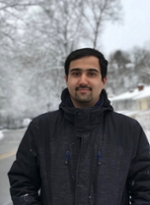 Alireza Chamanzar
Alireza Chamanzar
Electrical and Computer Engineering, Ph.D. Candidate, College of Engineering
Alireza received his B.S. and M.S. degrees in electrical engineering from Sharif University of Technology, and received a M.S. degree in electrical and computer engineering from Carnegie Mellon University. He is the recipient of the 2018-2019 CMU BrainHub fellowship. His main research interest is on designing new algorithms for use in the early diagnosis and monitoring of neurological disease.
His research focuses on developing diagnostic methods for Traumatic Brain Injuries (TBIs), stroke, and migraine, by synthesizing ideas from AI, machine-learning, and signal processing. Alireza has recently developed SilenceMap, an open-source algorithm based on scalp electroencephalography (EEG). Using a novel hemispheric baseline approach and a convex spectral clustering framework, SilenceMap permits rapid detection and localization of regions of silence in the brain, e.g., ischemic, necrotic, or lesional tissue in stroke, traumatic brain injuries (TBIs), or even tumors in the brain, using only 3 min of EEG data.
 Brian Holt
Brian Holt
Research Associate, Department of Chemistry, Mellon College of Science
Brian Holt is a research associate in the lab of Prof. Stefanie Sydlik. He completed his PhD in Biomedical Engineering from Carnegie Mellon University and his BSE in Biomedical Engineering from Case Western Reserve University.
In the lab of Prof. Sydlik, Brian is part of a team that aims to overcome heavy metal toxicity. To do so, they created a new class of chelators, termed "BioBinders". BioBinders can bind toxic metal ions while being biocompatible. Brian is working on developing this technology into a commercializable product that can benefit health.
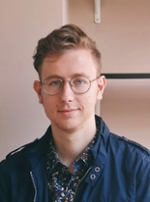 Gregory Houchins
Gregory Houchins
Physics Ph.D. Candidate, Mellon College of Science
Gregory Houchins received his B.S. in Physics and Mathematics from James Madison University and his M.S. in Physics from Carnegie Mellon. He is currently a Physics Ph.D. candidate whose research covers a range of topics in electrochemistry and energy storage, from machine-learning-enabled computational optimizations of Li-ion battery cathodes, to mechanistic understandings of degradation pathways.
His continued research will focus on developing electrochemically engineered carbon zero cement inspired by battery science, which would drastically reduce the embodied carbon of concrete and the carbon output of the built environment.
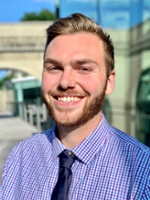 Luke Lyle
Luke Lyle
Ph.D. Candidate, Materials Science and Engineering, College of Engineering
Luke Lyle earned his M.S degree from Carnegie Mellon University in Materials Science and Engineering and also holds B.S and B.A degrees in Physics and Mathematics from the University at Buffalo.
The focus of his doctoral research is gallium oxide, a wide bandgap semiconducting material for high power electronic applications. In these applications, gallium oxide is poised to have vastly higher efficiencies than competing materials. This material is critical for developing renewable energy technology by increasing the efficiency of power electronics in electric vehicles, wind turbines, solar cells, and batteries. He is working on commercializing this technology with the development of an industrially scalable, novel technique to grow gallium oxide aiming to leverage this material for use in renewable energy systems.
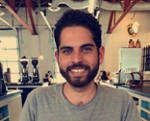 Jay Reddy
Jay Reddy
Electrical and Computer Engineering, Ph.D. Candidate, College of Engineering
While at CMU, Jay has worked with Prof. Maysam Chamanzar to develop "Advanced Optronics", a flexible polymer device architecture to pipe photons into or out of biological tissue. This platform enables efficient optical access deep into tissue from light sources and sensors located safely outside of the body, using only a micrometer-scale, flexible, polymer optical tether.
2019 Fellows
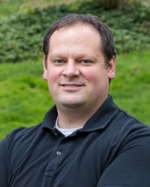 Joe Bartels
Joe Bartels
Postdoctoral Researcher, Robotics Institute, School of Computer Science
During his graduate studies at CMU and in collaboration with others in the Illumination and Imaging Lab, Joe developed novel depth imaging systems for use in robotics and automation. These imaging systems include a long-range outdoor depth camera and a fully programmable 3D light curtain device. As a NASA Space Technology Research Fellow, he applied this research to 3D sensing for planetary rovers. Joe is now working to commercialize this technology for broad use in robotics including self-driving cars, industrial manufacturing, and mobile robots.
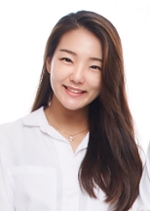 Jooli Han
Jooli Han
Ph.D. Candidate, Biomedical Engineering, College of Engineering
Jooli Han is a 4th year Ph.D. student in Biomedical Engineering at Carnegie Mellon University. Before CMU, she received her Bachelor’s and Master’s degrees both in Biomedical Engineering from State University of New York. After completing the Master’s program, she worked at a start-up medical device company for 1 year.
Her research focuses on the development of soft robotic muscle-powered cardiac assist devices for heart failure patients. A soft robotic cardiac compression cup that is 3D printed using flexible polymer and powered by the natural contraction of human skeletal muscle improves cardiac function without requiring a percutaneous driveline or touching the blood stream. This will eliminate the risks of infection and pump thrombosis, and therefore, significantly reduce the rate of readmissions caused by secondary complications.
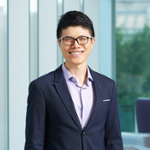 Bruce Wu
Bruce Wu
Research Scientist, Scott Institute for Energy Innovation
Bruce holds a Ph.D in Materials Science and Engineering from Carnegie Mellon. Through his academic and professional career, Dr. Wu develops expertise on novel materials synthesis, process development and supply chain management. He is currently working with Professor Whitacre’s group on developing reuse and recycle technologies for lithium-ion batteries. Lithium-ion battery recycling is a complicated challenge that requires system level solution. Bruce is working with his team to come up with solutions that can optimally utilize the residual value of used lithium-ion battery cells through secondary use as energy storage solutions and direct recycling to exact high value materials. Bruce is also pursuing an MBA degree in Tepper School of Business.
2018 Fellows
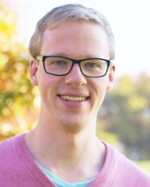 Stuart Diller
Stuart Diller
Ph.D. Candidate, Mechanical Engineering, College of Engineering
Stuart holds a B.S. in Mechanical Engineering from the University of Virginia, and an M.S. in Mechanical Engineering from Carnegie Mellon. His research focus is developing new actuator hardware and control algorithms that make robots more dynamic, safe, and energy-efficient.
During his time at CMU, Stuart has designed and characterized an electroadhesive clutch that weighs 10x less and uses 1000x less energy than conventional designs. He is currently prototyping an actuator based on these clutches that can harvest and return a robot's wasted movement energy at more than 85% efficiency. This design promises to make mobile and interactive robots dramatically more capable, lightweight, and efficient.
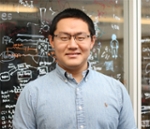 Anhong Guo
Anhong Guo
Ph.D. Candidate, Human-Computer Interaction Institute, School of Computer Science
Anhong Guo is a Ph.D. Candidate in School of Computer Science at Carnegie Mellon University, specialized in Human-Computer Interaction. He has published in many top academic conferences in interface technologies, wearable computing, accessibility and computer vision. Before CMU, he received his Master’s in HCI from Georgia Tech. He has also worked in the HCI group of Snap Research, the Accessibility Engineering team at Google, the Intelligent User Experiences group in Microsoft Research, and the Mobile Innovation Center of SAP America.
His research investigates deeply integrating crowdsourcing and computer vision techniques to understand visual information in the real world, and applying this to two application domains: Accessibility and Internet of Things. He is excited to explore the hybrid crowd-AI approach in enabling better access to information, interfaces and environments for visually impaired people.
Website: http://www.guoanhong.com
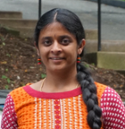 Ashwati Krishnan
Ashwati Krishnan
Post-Doctoral Researcher, Electrical and Computer Engineering, College of Engineering
Ashwati Krishnan obtained her B. Tech from Vellore Institute of Technology (VIT) in Electronics and Instrumentation Engineering. She received her M.S. and Ph.D. in Electrical and Computer Engineering from Carnegie Mellon University. Her doctoral dissertation was on safe electrical stimulation circuits in retinal implants.
Ashwati's post-doctoral research is on the instrumentation and hardware development of ultra-high density electroencephalography (EEG). EEG is a technique used to non-invasively record signals from the brain on the scalp. By increasing the number of electrodes, it is possible to obtain more information, when combined with signal processing algorithms and neuroscientific validation methods. Her recent work focuses on the development of a reusable conductive interface between the electrode and the scalp in order to reduce the setup time. She also designs electronics circuits for efficient management of high electrode counts.
LinkedIn
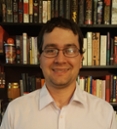 Brandon Taylor
Brandon Taylor
Ph.D. Candidate, Human-Computer Interaction Institute, School of Computer Science
Brandon holds a Master's degree in Media Arts and Sciences from the MIT Media lab and B.S. degrees in Radio, Television and Film and Electrical and Computer Engineering from The University of Texas at Austin.
Throughout his academic career and his experience at Samsung Electronics, Brandon's research focus has long been on sensing and interpreting user actions from novel interfaces. As a Ph.D. student in the HCII, Brandon developed a multi-modal approach to recognizing American Sign Language (ASL). He is now working to scale and distribute his ASL recognition system. With expanded data collection, Brandon hopes to both improve automated ASL recognition and cultivate a database for exploring automated ASL to English translation.
LinkedIn
 Jeremy Thomas
Jeremy Thomas
Software Engineer, Cylab Security and Privacy Institute
Jeremy received his B.S. degree in electrical and computer engineering from the University of Pittsburgh. He currently works in CyLab, Carnegie Mellon University's security and privacy research institute, as a software engineer contributing to research in usable privacy and security. Jeremy also is pursuing a master’s degree in privacy engineering through the School of Computer Science and the College of Engineering.
As part of Professor Nicolas Christin's research group, Jeremy has worked on developing a continuous monitoring software system to collect data from online anonymous marketplaces throughout the "dark web" and other various “surface” web platforms. This allows for a detailed understanding of the growth of the online anonymous marketplace ecosystem and the evolution of the types of illegal goods and services being bought and sold online.
2017 Fellows
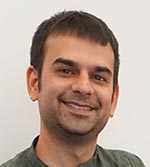 Sankalp Arora
Sankalp Arora
Ph.D. Candidate, Robotics Institute
Sankalp Arora is a doctoral candidate Ph.D. student at the prestigious Robotics Institute (RI) at Carnegie Mellon University. He holds a Masters in Robotics from RI and undergraduate in electronics from Delhi College of Engineering. He also has experience working with Hitech Robotics Systemz.
During his graduate studies at RI he has developed planning and perception algorithms for flying vehicles. He developed safety and sensor planning for AACUS, the world's first guaranteed safe full scale autonomous helicopter and the world's first weather invariant infrastructure free ship-deck tracker. He is a recipient of the 2016 Qualcomm Innovation fellowship for the development of autonomous Unmanned Aerial Vehicles for data gathering. Sankalp is now working towards developing AI for flying vehicles for high value commercial applications like inventory taking, inspection and logistics.
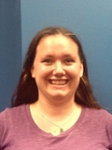 Erin Dauson
Erin Dauson
Civil and Environmental Engineering Postdoctoral Research Fellow, College of Engineering
Erin Dauson received an A.B. in Engineering, and Mathematics from Dartmouth College, a B.E. in Optical Engineering from Thayer School of Engineering at Dartmouth College, and a M.S. and PhD in Civil and Environmental Engineering from Carnegie Mellon University. She is now a Postdoctoral Research Associate in the Civil and Environmental Engineering Department at CMU.
Erin’s graduate and postdoctoral research has focused on the development of microfluidic devices that use an acoustic field to focus or separate particles by their physical properties. Her recent work focuses on the separation of human blood cells in an inexpensive, micro-machined, acrylic prism that contains a microchannel which is tilted at an angle with respect to a standing acoustic wave field. The difference in the acoustic force and drag force on cells with different properties in this device causes them to separate. Her current research aims to apply this technology to droplet-based, point-of-care medical diagnostics.
 T.J. Hinton
T.J. Hinton
Biomedical Engineering Postdoctoral Fellow, College of Engineering
After a B.S. in Biomedical Engineering at Purdue University, T.J. completed his M.S and Ph.D. in Biomedical Engineering at Carnegie Mellon University.
For the past 6 years, T.J. has been working with open-source, extrusion-based 3D printing. As part of Prof. Adam Feinberg’s lab, T.J. invented the first embedded 3D printing technique FRESH for additively manufacturing fluids that gel. T.J. seeks to commercialize aspects of the FRESH 3D printing ecosystem and thereby supply additive manufacturing research with a reliable means of 3D printing fluids.
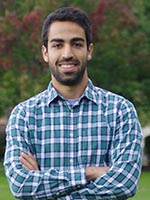 Navid Kazem
Navid Kazem
Civil and Environmental Engineering Ph.D. Candidate, College of Engineering
Navid received his B.S. degree in civil engineering from Sharif University of Technology and got his M.S. degree in civil and environmental engineering from Carnegie Mellon University. His main research interest is on multifunctional soft materials with suspension of liquid metals embedded in elastomers.
He has worked on developing a flexible and stretchable rubber that has thermal conductivity approaching metals (Thubber). This material is softer than human skin and can stretch up to 7 times its initial length. Thubber can have applications in wearable computing, stretchable electronics, biomedical devices and athletic garments.
 Amber Lucas
Amber Lucas
Biological Sciences Ph.D. Candidate, Department of Biological Sciences
Amber Lucas received her B.S. and M.S. in biochemistry from Texas State University.
Amber's research involves developing tools for researchers to better study the proteins of the cell. These tools are designed to make pharma and biotech experiments involving proteins faster, more reliable, and more sensitive.
Proteins are often used as biomarkers for disease, therapeutic agents to treat diseases, or to understand the underlying mechanism of a disease, so these tools will allow pharma and biotech companies to get diagnostic tools and therapeutic agents to market much faster than currently available methods, as well as allow for deeper understanding of the mechanisms that can lead to a disease in the first place.
2016 Fellows
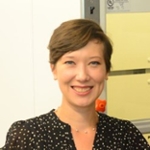 Antonina Simakova
Antonina Simakova
Postdoctoral Research Associate, Department of Chemistry
Antonina received her B.S. and M.S. in Chemical Technology and Biotechnology from the Mendeleev University of Chemical Technology of Russia, and holds a PhD in Chemistry from CMU.
During her graduate research she has worked on the technology at the interface of polymer and protein science, which can transform enzymes into efficient catalysts useful in pharmaceutical, chemical and biofuel industries. Antonina is currently directing research and development efforts at BioHybrid Solutions, a CMU spin-off focused on the development of a protein enhancement technology platform. The mission of BioHybrid Solutions is to revolutionize the use of proteins in industrial and pharmaceutical applications through polymer-based protein engineering.
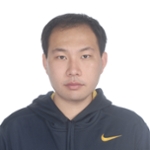 Miao Yu
Miao Yu
Electrical and Computer Engineering Ph.D. Candidate, College of Engineering
Miao received his B.S. in software engineering and M.S. in computer software and theory from Shanghai Jiao Tong University, China.
Miao's research focuses on providing trusted accesses to devices for security sensitive applications isolated from the commodity software. This research fills the gap in achieving end-to-end security; e.g., a banking client software securely communicates with its server via encrypted network, and can now apply this research to securely interact with users even the operating system is compromised.
Fall 2015 Fellows
 Jungsuk Kim
Jungsuk Kim
Electrical and Computer Engineering Ph.D. Candidate, College of Engineering
Jungsuk Kim received his B.A. and M.S. in electrical engineering from Seoul National University in South Korea. His research focuses on parallel processing and machine learning, specifically with respect to Automatic Speech Recognition (ASR) on GPU-accelerated platforms.
Jungsuk is currently leading ASR development at Capio, a startup that is developing the next generation of speech recognition and natural language understanding technologies. Capio’s unique architecture delivers an unmatched combination of speed and accuracy for speech recognition and contextual understanding.
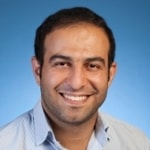 Javad Mohammadi
Javad Mohammadi
Electrical & Computer Engineering Ph.D. Candidate, College of Engineering
Javad Mohammadi received his M.S. in electrical and electronics Engineering from the University of Tehran. His main research interests include, optimization in energy networks, power system operation, distributed algorithms and smart grid.
The focus of his research is providing distributed solutions to power systems that are currently solved in a centralized manner. This class includes OPF and SCOPF and other optimal power dispatch problems. Javad is developing a fully distributed algorithm that not only handles the computational complexity of the problem, but also provides a more practical solution for these problems in the emerging smart grid environment.
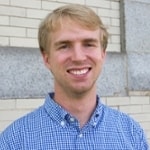 Clinton Noack
Clinton Noack
Civil & Environmental Engineering Ph.D. Candidate, College of Engineering
Clinton holds an M.S. degree at CMU CEE and a B.S. degree in environmental systems engineering from the Pennsylvania State University. He is also the chief operating officer of Anactisis, LLC.
In his Ph.D. work, Clinton has studied the aqueous carbonation mechanisms of alkaline industrial wastes, the geochemistry of the rare earth elements (REE) and chemical/engineering strategies to recover the REE from complex aqueous matrices.
 Xavier Perez
Xavier Perez
Postdoctoral Fellow, Robotics Institute
Xavier received his B.S. degree in electronics engineering, as well as his M.S. and Ph.D. degrees in computer science from Universitat Politecnica de Catalunya, Spain.
He is conducting research in facial image analysis and collaborating with FacioMetrics LLC to transfer this technology to the wider public.
 David Skoog
David Skoog
Biomedical Engineering Ph.D. Candidate, College of Engineering
Dave has a B.S. in mechanical engineering from Virginia Tech and an M.S. in biomedical engineering from the University of Michigan.
In the past five years Dave has worked on several artificial lung projects including the compliant Thoracic Artificial Lung (cTAL). In the coming years he hopes to continue research into artificial lungs and provide a long-term treatment mode for millions of untreated chronic respiratory disease patients.
 Matthew Tesch
Matthew Tesch
Senior Systems Software/Hardware Engineer, Robotics Institute
Matt was a member of the second graduating class of Franklin W. Olin College of Engineering in 2007, receiving a B.S. in engineering with a concentration in systems. He pursued an interest in full systems-level problems, from the hardware to the software, through graduate studies in the Robotics Institute at Carnegie Mellon receiving an M.S. in robotics.
Matt's work includes research with HEBI Robotics, a spinoff from Carnegie Mellon’s Biorobotics Lab. HEBI is enabling the rapid development of inexpensive, high-quality and safe robotic systems through the use of intelligent robotic modules.
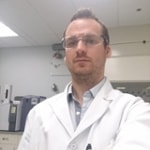 John Watkins
John Watkins
Visiting Researcher, Mellon College of Science
John is a former employee of the U.S. Department of Energy at the National Energy Technology Laboratory with a Ph.D. in electrochemistry at the University of Bath in the U.K.
John worked at the U.S. Department of Energy working with future Lumishield co-founders, Dr. Hunaid Nulwala and Dr. Dave Luebke. Lumishield is a materials spin-off from CMU focusing on solving the problem of steel corrosion in an environmentally responsible way to replace the current highly toxic technologies that industry needs.
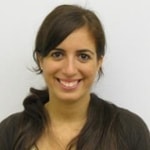 Nesra Yannier
Nesra Yannier
Human-Computer Interaction Ph.D. Candidate, School of Computer Science
Nesra holds an M.A. degree in learning, design and technology from Stanford University, an M.S. degree in computational sciences and engineering and B.S. degrees in physics and computer Engineering from Koc University, Istanbul. She also has experience working with Disney Research and NASA Ames Research Center.
During her Ph.D. in human-computer interaction at CMU, she started NoRILLA, a new mixed-reality system bridging physical and virtual environments to improve children's science learning in a more enjoyable and collaborative way.
Spring 2015 Fellows
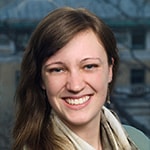 Molly Blank
Molly Blank
Biomedical Engineering Ph.D. Candidate, College of Engineering
Molly holds a B.S. degree in mechanical engineering from the University of Washington and now pursues the development of medical devices in the biomedical engineering Ph.D. program at Carnegie Mellon.
Molly’s most recent innovation, PalpAid, addresses the fact that non-life-threatening benign breast diseases are treated like cancer, causing unnecessary stress and costs. PalpAid provides a safe and reliable alternative to painful tests and biopsies of probably benign conditions. Through the development of unique and forward-thinking medical devices like PalpAid, Molly intends to help shape how we collect and interpret health care data to enhance the role of patients in their own care.
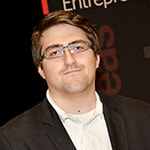 Jeffrey Rzeszotarski
Jeffrey Rzeszotarski
Human-Computer Interaction Ph.D. Candidate, School of Computer Science
Jeffrey holds a B.A. degree in computer science from Carleton College and an M.S. in human-computer interaction from Carnegie Mellon. In his research, Jeffrey studies how people interact and generate online content.
Jeffrey is also co-founder and CEO of DataSquid, a data visualization startup. DataSquid uses cutting-edge data visualization research to help businesses and everyday people make better decisions with their data.

